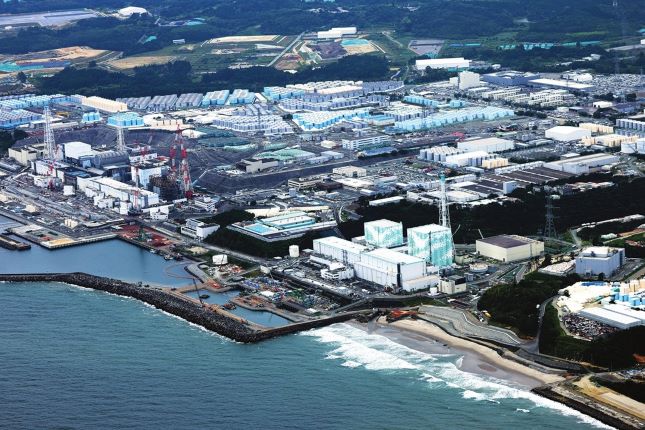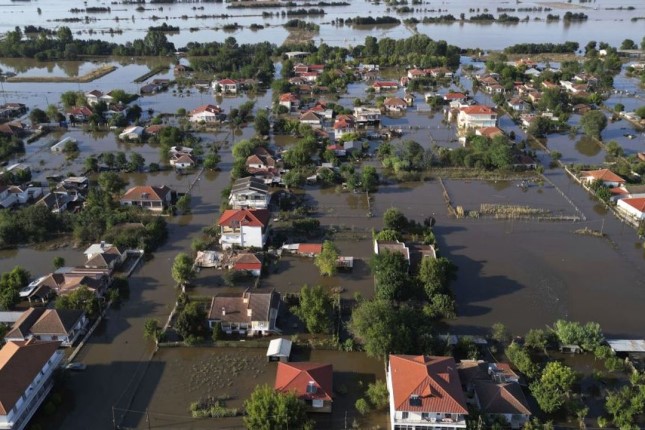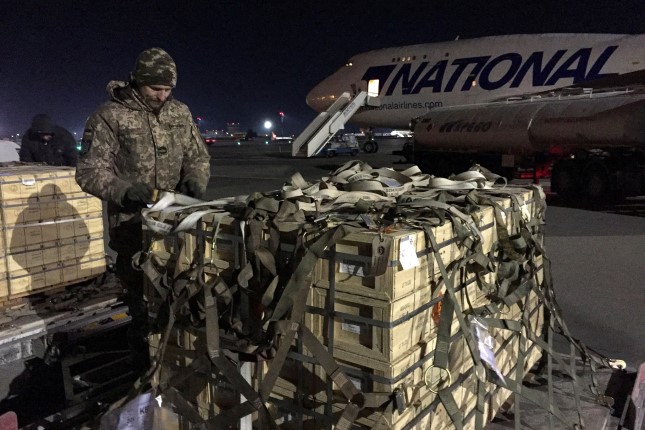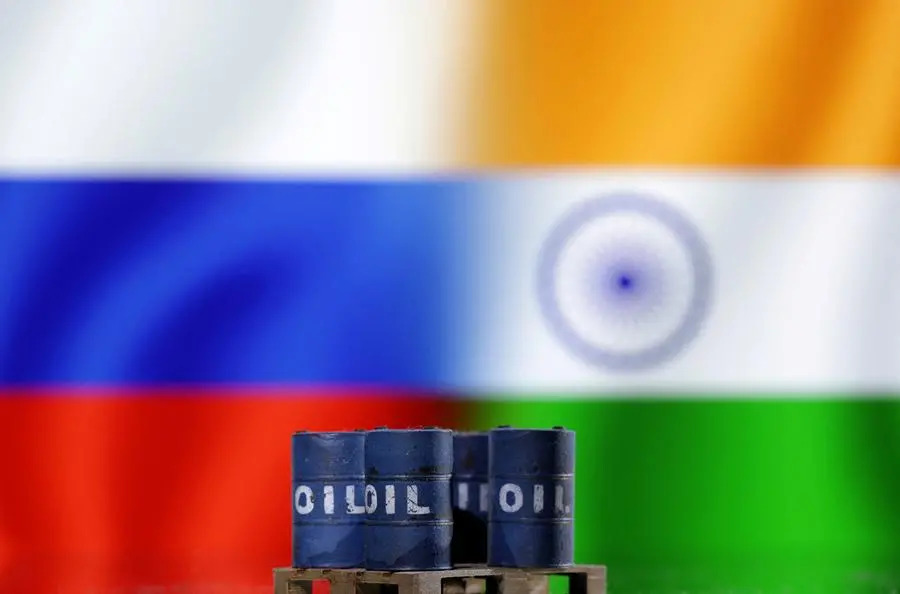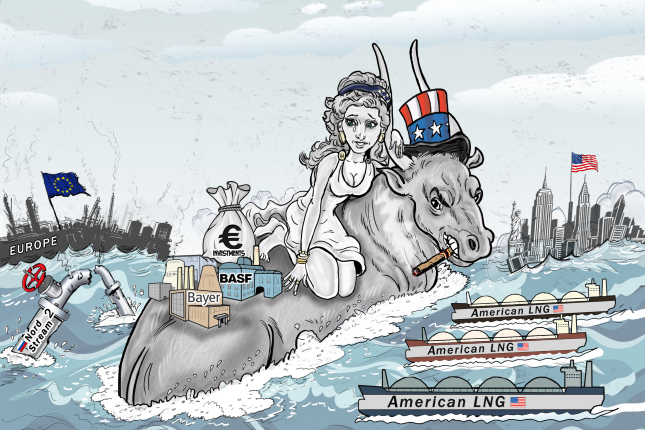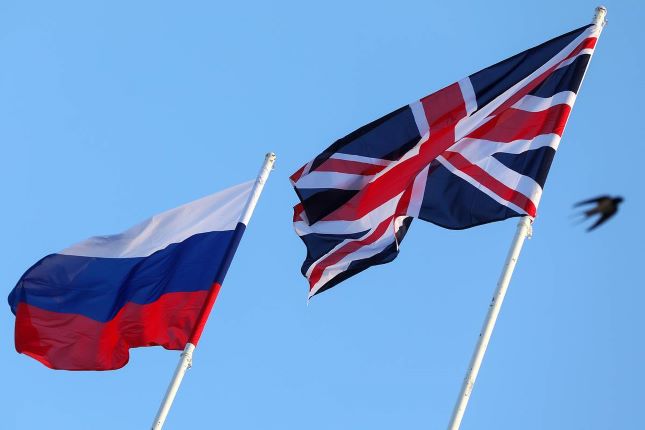Japanese Prime Minister Fumio Kishida has opened a Pandora's Box by deciding on Tuesday to start dumping the Fukushima nuclear-contaminated wastewater into the sea from Thursday regardless of mounting concern and persistent opposition at home and abroad.
The decision, made at a Japanese ministerial meeting on Tuesday morning, has immediately faced strong backlash with not only the protests held in Japan and condemning voices heard among the public and calls from China to withdraw the decision, but also the potential tightened import restrictions of Japanese food from stakeholder nations and regions. Observers also warned it's a big blow to Japan's national image and economic interests and its people-to-people exchanges with other countries and regions.
Chinese Vice Foreign Minister Sun Weidong on Tuesday summoned Japanese Ambassador to China Hideo Tarumi to lodge solemn representations over Tokyo's announcement of dumping nuclear contaminated wastewater from the Fukushima nuclear plant into the ocean starting from Thursday.
Sun pointed out that such an act blatantly transfers the risk of nuclear pollution to neighboring countries, including China, and the international community, and puts one's own interests above the long-term well-being of people in the region and around the world. "It is extremely selfish and irresponsible. China expresses grave concern and strong opposition," he said.
Following the announcement, some 230 activists and fishermen gathered outside the Japanese prime minister's office in protest.
Participants urged the government to "listen to the voices of fishermen" and not to discharge "contaminated water into the sea," Kyodo News reported.
Yoshitaka Ikarashi, the Japanese representative of the Somei Platform - the Japan-China common market promotion association, also a resident in Iwaki, Fukushima Prefecture, who has been active in opposing the dumping plan, told the Global Times on Tuesday afternoon that he was rushing to Tokyo after the announcement and plans to deliver a proposal to the Diet after holding an emergency meeting with other Japanese stakeholders and politicians.
He strongly questioned Kishida's claims that he has reached a certain understanding with the fishermen after meeting with the head of the National Federation of Fisheries Cooperative Associations on Monday.
"I'm always firmly against it [the contaminated water dumping plan] … The decision to leave Fukushima and the people behind was by no means the consensus of the Japanese people," said Ikarashi.
Junichi Tamatsukuri, a Japanese lawmaker from Ibaraki Prefecture, which borders Fukushima, also told the Global Times that he plans to join the rally on August 26 against the dumping of the contaminated water in Mito, capital city of Ibaraki.
About 12 years ago, "an unscientific nuclear power policy that prioritized the economy over safety caused man-made disasters" in Fukushima with local nuclear power plants crippled after poor response following the March 2011 earthquake and tsunami, Etsuro Totsuka, a Japanese human rights lawyer, who has been litigating environmental pollution cases for decades, revealed. This time, under the similar policy, the Japanese government has decided to dump contaminated water, Totsuka told the Global Times.
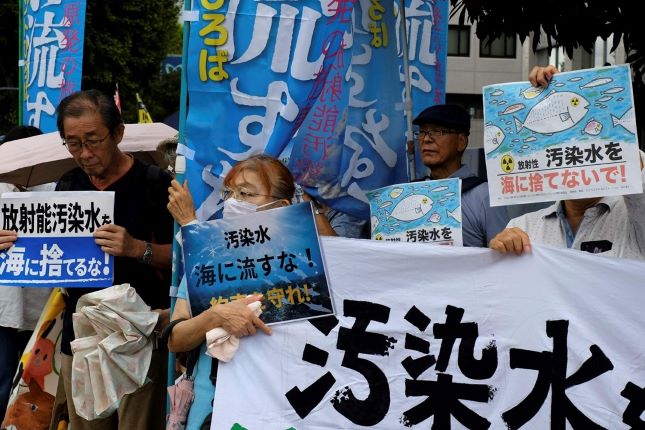
Japanese protesters hold signs reading "Don't throw radioactive contaminated water into the sea!" and "Don't throw polluted water into the sea," as they take part in a rally against the Japanese government's plan to dump contaminated wastewater from the crippled Fukushima Daiichi power plant into the ocean, outside the prime minister's office in Tokyo on August 22, 2023. / VCG
Backlash from neighbors
Anger and fears spread like wild fire to countries and regions outside of Japan.
In response to the arbitrary dumping decision by Tokyo, Wang Wenbin, spokesperson of the Chinese Foreign Ministry, stressed at a Tuesday press conference that the Chinese government puts the people first, and relevant departments will take necessary measures to safeguard food safety and the health of the Chinese people.
China is seriously concerned about and strongly opposes the decision and has lodged solemn representations with the Japanese side, urging it to withdraw the wrongful decision, Wang stated.
Japan has turned a deaf ear to international calls, made every effort to create the illusion that the contaminated water dumping is safe and harmless, and even made unreasonable accusations against its neighbors who expressed legitimate concerns, Wang condemned.
The decision will blatantly transfer the risk of nuclear pollution to the world, and put its own interests above the long-term well-being of humanity. "This act is extremely selfish and irresponsible," Wang said.
The Chinese Embassy in Japan on Tuesday also criticized the decision, saying Japan's claim that the dumping of contaminated water is approved by the International Atomic Energy Agency and is safe and harmless to the marine environment is completely confusing and unconvincing.
China's Macao Special Administrative Region (SAR) announced Tuesday that it will ban imports of fresh food, animal-derived food, sea salt and seaweed from 10 Japanese prefectures and cities including Fukushima, Ibaraki and Tokyo starting from Thursday. The ban will include vegetables, fruits, milk and dairy products, aquatic products, meat and its products, and poultry eggs.
Hong Kong SAR decided on Tuesday to ban the import of fish products from the 10 cities and prefectures from Thursday, including all live, frozen, refrigerated, dried or otherwise preserved fish products, sea salt, and unprocessed or processed seaweed.
John Lee Ka-chiu, chief executive of the Hong Kong SAR, said on the day that he strongly opposes the dumping plan.
A representative of Hong Kong Federation of Restaurants and Related Trades said many diners have already lost confidence in Japanese food, noting the future business of Japanese food catering may fall by nearly 70 percent.
China imported 234.51 million yuan ($32.14 million) of fish and other aquatic products from Japan in July, down 29 percent from a year earlier, according to data released by China's General Administration of Customs. This data came after China announced in early July a continuation of its previous ban on imported food from Japan's Fukushima and nine other regions and said the country will rigorously examine certificates for food imports, especially aquatic products, from the other non-banned Japanese prefectures.
Chinese netizens also rushed to social media platforms to express their calls for expanding the import ban to other agricultural and food products, skin care products and cosmetics with marine ingredients from the high-risk areas near Fukushima.
Another Japan's neighbor - South Korea, which had been on the frontlines against Japan's unilateral plan to dump the wastewater, now expressed ambivalence over Tokyo's decision.
The South Korean government said in a statement on Tuesday it sees no problem with the scientific or technical aspects of Japan's plan to release water from the wrecked Fukushima nuclear power plant but it does not necessarily support the plan, according to Reuters.
The country's opposition Democratic Party, however, said on Tuesday that its "battle" to stop the release would continue. Some party members will visit the Japanese Embassy in Seoul to protest.
Bad example
The Japanese lawyer Totsuka expressed his deep concern that once the contaminated water is released into the high seas through Japan's territorial waters, the radioactive material from the contaminated water will spread and become uncontrollable and unidentifiable. It is completely unknown what kind of impact it will have on the life and health of all human beings through the marine ecosystem and how it will violate human rights.
A top Chinese expert on nuclear safety who requested anonymity also questioned the science and legitimacy of the disposal plan and the reliability and effectiveness of the ALPS -- the multi-nuclide removal system -- and stressed the unpredictability and uncertainty of the damage toward human health, bio safety and the global environment once the discharge begins.
Even if radioactive substances accumulate in fish and shellfish and cause some effect on the people who eat them, it is impossible to prove the causal relationship whether the damage is due to the radioactive substances derived from the Fukushima contaminated water, Totsuka said. Although the dumping plan is highly problematic from a legal perspective, it is very difficult to hold the Japanese government and TEPCO legally responsible, Totsuka noted.
Given that the US and some of its allies have indulged Japan to make this decision, dumping the nuclear-contaminated wastewater will set a precedent and the international community has lost the brakes on the issue. The possibility that other countries and regions will follow suit in disposing such radioactive materials cannot be ruled out, the Japanese lawyer warned.
What will be unleashed once the Pandora's box is open? Many observers asked. The answer to this question may become a landmine threatening the ecological environment of the world and the fears of real-life Godzilla among the public worldwide.
Main photo: Tokyo Electric Power Co (TEPCO) Fukushima Daiichi nuclear power plant. © VCG
Source: Global Times.
